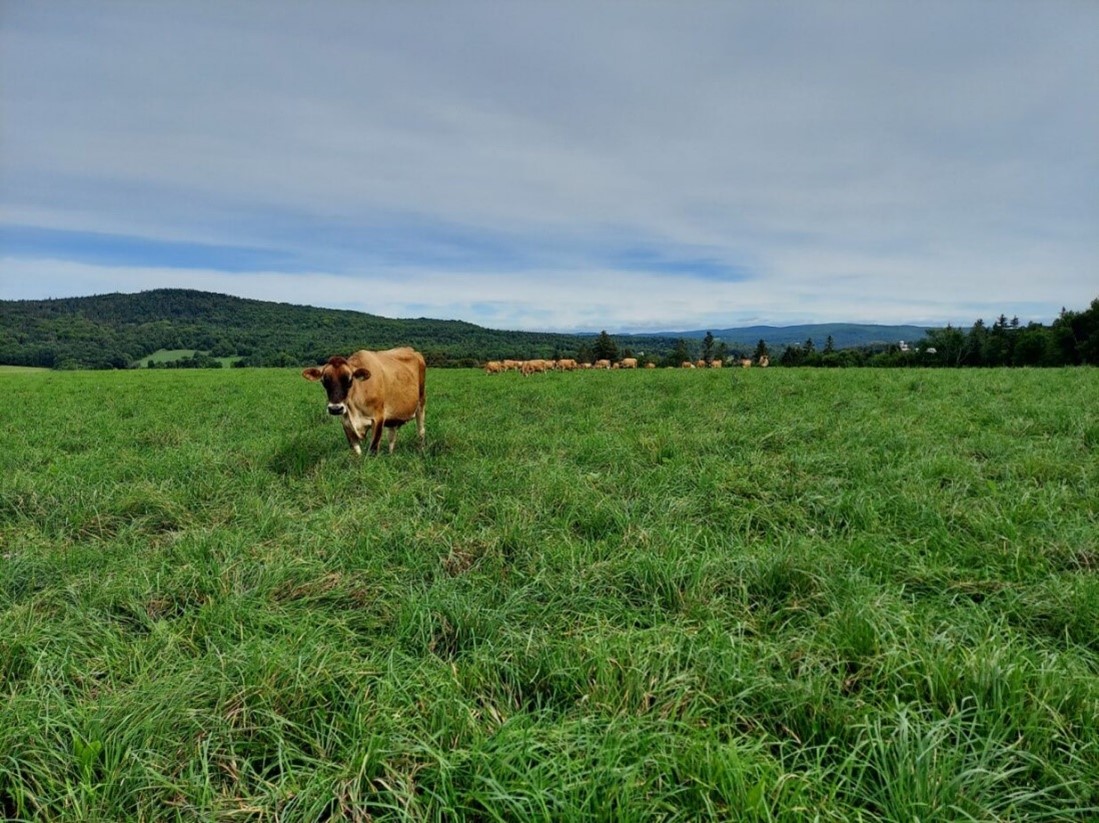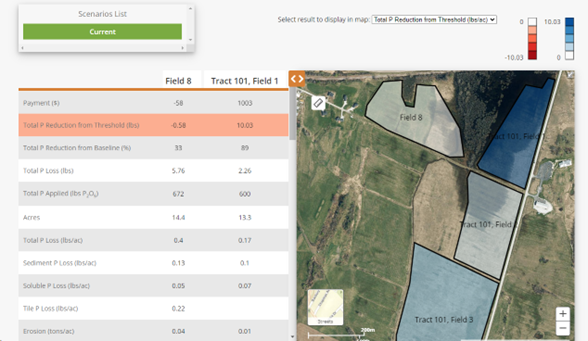By Lauren Weston, Franklin County Natural Resources Conservation District
The Franklin County Natural Resources Conservation District (FCNRCD) has worked with 23 farms in Franklin and Grand Isle County (out of the 56 total enrolled farms across Vermont) since early 2022 on the Vermont Pay for Performance Program. We have been serving as technical assistance providers to these farmers to assist with data entry, data upkeep, verification, and reviewing management alternatives to help farmers access this novel program and receive benefits from their land stewardship practices.
This process has created an opportunity for the FCNRCD to develop relationships with farmers who we previously had not been in contact with and to deepen relationships with other farmers who we may have partnered with in the past. By helping a number of farmers keep their Nutrient Management Plans up to date with annual manure samples and soil samples every three years, we have been able to assist farms with their eligibility for the Vermont Pay for Performance Program. We have been meeting with our farmers in the program at least three times each year to discuss their plans for the upcoming growing seasons, changes to the lands they are managing such as which fields they might be renting, and connecting again at the end of the growing season to discuss what practices and results actually happened on their fields, even if they deviated from their original plan. This program accounts for the realistic on-the-ground factors affecting farmers and allows for changes from planned to actual management, such as a wet spring leading to late corn planting and possibly impacted cover cropping timing in the fall.
Most of the farmers that we have partnered with have found success in the program and have enrolled in the long-term cohort of performance payments based on their on-farm phosphorus reduction strategies. We’ve been seeing that most farmers are already implementing practices to reduce phosphorus losses from their fields above and beyond what had been assumed at the time of the writing of the Lake Champlain Phosphorus TMDL; they have been taking care of our lands and waterways. Our farmers are receiving thousands of dollars in payments, varying widely by farm, of course, but which shows that the farmers and land managers are doing their part to help improve water quality and create viable, sustainable working landscapes. Guy Choiniere of Choiniere Family Farm says that “the PFP program has been a pleasant surprise! Even though we have an all grass farm… this program provides a lot of incentive and rewards for using best management practices such as nutrient management planning and rotational grazing”.
The Farm Phosphorus Reduction Planner (FarmPREP) tool being used in this program is one step on the path towards trying to better understand what is actually happening on the ground in discrete locations, rather than generalizing impacts across the whole state. The tool indicates that some areas are indeed more sensitive to land management than others when it comes to Phosphorus. There are certainly many more leaps to make to achieve comprehensive performance measurements, but this effort is a novel step along that journey. FarmPREP itself has also already grown to include pasture and grazing in addition to annual crops and hay.
FCNRCD is viewing this program as both a water quality tool and a farm viability tool for our farmers. In alignment with many ongoing statewide discussions about Payment for Ecosystems Services and compensating land managers for the non-market-driven benefits that they bring to the landscape, this program is funding farmers for the good work that they are already doing and further incentivizing improved changes to land stewardship. We hope to see the working landscape continue to thrive in Vermont into the future, and look forward to working with more farms who apply to the Vermont Pay for Performance program in the upcoming funding round, which will be released in January.

The Vermont Pay for Performance program supports Vermont farms to reduce phosphorus runoff from their fields compared to assumed historic land use. Rotational grazing and managing land as perennial sod is one strategy that participating farmers have been using to reduce their runoff. Other successful strategies used include nutrient management planning, cover cropping, tillage reduction and manure injection.

The FarmPREP tool (shown here being used on a hypothetical demo farm) provides field-by-field results for phosphorus loss based on the field soils and slope, weather, and current or planned management of a farm.

